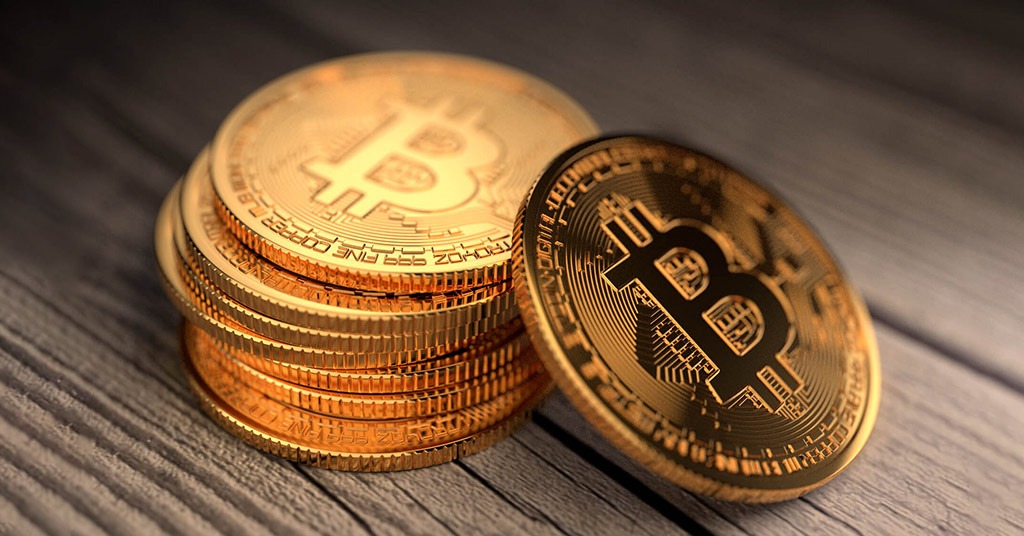PaySpace Magazine Global wants to highlight the main challenges, risks and prospects of Bitcoin investments

Biggest risks of investing in Bitcoin explained. Source: flickr.com
Popular but controversial – Bitcoin remains one of the most widely discussed topics in the finance industry. Individuals, agencies, and whole countries are torn apart between the desire to seize unique investment opportunities and the fear of losing all their savings. Indeed, there are many hidden pitfalls, when you deal with a financial instrument that’s still questionable in terms of value.
Banking & mining limitations
Unlike fiat, Bitcoin is not a fully-fledged currency. Its use is still greatly limited due to national regulations. Like most other crypto assets, Bitcoin is accepted by selected retailers only. Besides, even the most progressive companies like Tesla can’t ignore the negative influence BTC mining has on the environment and energy consumption. Hence, both global and local brands aren’t rushing to adopt Bitcoin payments.
Moreover, most reputable banking institutions warn their customers against investing in BTC as an unstable financial instrument.
To step away from mere rhetoric, let’s take a look at the position of global banking regulators regarding BTC and other altcoins.
China. The country was home to around 70% of global Bitcoin mining power, until the government announced a national ban on cryptocurrency mining and trading. China prohibited all its financial institutions and payment companies to provide services related to cryptocurrency transactions, banned or restricted Bitcoin mining in most popular mining regions, and warned investors against speculative crypto trading.
Efforts to undermine Bitcoin – a decentralised currency outside the control of governments and institutions – are largely seen as an attempt by the Chinese authorities to boost the position of their own centralised e-currency. The People’s Bank of China (PBoC) is actively developing the digital yuan.
Another valid point in the Chinese crackdown on BTC and altcoins is the use of crypto for illegal activities. China has recently witnessed the rise and fall of a major crypto Ponzi scheme – PlusToken. The scheme tricked more than 2 million investors out of BTC worth about $4 billion (per late 2020 prices). Truly, Bitcoin mixing services often help criminals to hide the origin of crime proceeds, and hinder law enforcement agencies investigating financial crimes.
Europe. The European Central Bank (ECB) regulating financial activities within the 19 European Union countries officially doesn’t consider Bitcoin a currency. The main ECB’s arguments against BTC is that no entity is backing it with any physical or fiat assets, it is not a generally accepted form of payment, there is no legal protection for customers dealing with the crypto, it’s an unreliable store of value: unstable and volatile. In other words, the ECB treats Bitcoin as a speculative asset which makes trading akin to gambling.
Separate countries in the EU also express their concern on BTC investments. For instance, Norway’s central bank warned that dramatic price swings in cryptocurrency assets could become real trouble for the banking system if lenders continue to increase such investments. Meanwhile, Bank of England Governor Andrew Bailey skeptically said people should buy cryptocurrencies only if they’re prepared to lose all their money.
The majority of European citizens stay away from crypto trading. Lack of knowledge is cited as the main reason why they avoid purchasing virtual currencies.
Not denying the benefits of blockchain technology, the ECB has decided to launch the investigation phase of a digital euro project. The investigation phase will examine the use cases, changes to the EU legislative framework which might be needed, assess the possible impact of a digital euro on the market, estimate privacy and anti-money-laundering levels, study the limitations on inclusiveness, as well as make sure that a digital euro core infrastructure would be environmentally friendly.
USA. The Federal Reserve is also exploring a move to a central bank digital currency (CBDC). The Federal Reserve Chairman Jerome Powell commented that CBDC could make cryptocurrencies such as Bitcoin or stablecoins such as Tether unnecessary. He also noted that the Fed doesn’t think volatile crypto assets (unlike stablecoins) might become a significant part of the payments universe. Earlier this year, Powell also warned consumers to be cautious with crypto trading: “They’re highly volatile and, therefore, not useful stores of value, and they’re not backed by anything.”
Main risks
As we can see, governments of the leading global economies have little belief in Bitcoin as a payment instrument. Setting aside the assumptions that all centralised economies are afraid to lose control over the money flow within their countries, let’s briefly sum up the most valid points in their arguments.
- Bitcoin is highly volatile.
- It’s a speculative asset and the price swings depend on subjective market trends, assumptions, etc. For instance, BTC has made a great plunge as a reaction to the news of Chinese real estate developer Evergrande’s possible bankruptcy. Analysts now deny Bitcoin can be treated as a safe-haven asset, as it behaves like other stocks.
- It has any value only as long as some people agree to that. If traders stop buying BTC, there’s no mechanism that will help to redeem initial investments. In other words, nothing backs its value.
- Crypto transactions are hardly traceable and they may facilitate illegal financial activities and fraud.
- Bitcoin mining is very energy-consuming and it can’t be sustainable in the long run.
Silver lining
This gloomy picture has bright strokes though. Bitcoin will maintain its value if the general consensus vests the crypto with such financial power. Currently, the world’s first crypto keeps being promoted by many institutions and even nations. Here are some examples.
Tech giants and leaders like Tesla, SpaceX, Square, Coinbase, Grayscale Investments, MercadoLibre, MicroStrategy, and others have all bought some BTC for their portfolios.
ARK Invest, which achieved tremendous success with its investment returns for only two years of existence, believes Bitcoin could be the most compelling monetary asset since gold. The fund teamed up with 21Shares to create and promote the first Bitcoin ETF. Its founder and CEO, Cathie Wood explains why BTC is an attractive investment for the future-oriented people.
El Salvador has recently declared Bitcoin as legal tender. El Salvadorans are now allowed to buy land with Bitcoin, pay taxes in Bitcoin, cash it out or make purchases with the dedicated app. The country sees it as a great way to boost financial inclusion and facilitate remittances which constitute one-fifth of the national GDP. The country now holds 700 coins worth about $29.7 million.
Global investment bank JPMorgan is launching a Bitcoin fund in collaboration with New York Digital Investment Group (NYDIG), even despite the heavy criticism of its own CEO. Known as the most fervent Bitcoin sceptic, Jamie Dimon had to admit that the bank’s clients are eager to get legal and formal access to crypto funds. Other banking giants like Morgan Stanley and Wells Fargo have also started providing the opportunity for their high-net-worth clients to invest in crypto.
Although Tesla will no longer accept Bitcoin over climate concerns, it’s still possible to purchase a vehicle in some places using Bitcoin. Many major companies like PayPal, Microsoft, Sotheby’s, as well as fast-food chains and food retailers accept BTC either directly or via partnerships with various crypto platforms.
Both Visa and Mastercard are working towards embracing BTC. Thus, Visa Crypto APIs empower users to buy and sell Bitcoin or participate in new crypto features. At the same time, Visa is developing a new credit card in partnership with cryptocurrency startup BlockFi that offers rewards for purchases with Bitcoin. Mastercard has partnered with Gemini to create a credit card with real-time crypto rewards as well.
Finally, the problem of Bitcoin’s environmental sustainability is already actively discussed and the solutions are being developed. The fintech giant Square has even launched a $10 million Bitcoin Clean Energy initiative to invest in companies that promote using clean energy for Bitcoin’s supply chain. For the time being, BTC mining already involves some alternative energy sources. According to the joint research initiative of Square and ARK Invest, Bitcoin could not only use the sustainable mining processes but also incentivise the renewable energy industry in general.
SEE ALSO:









